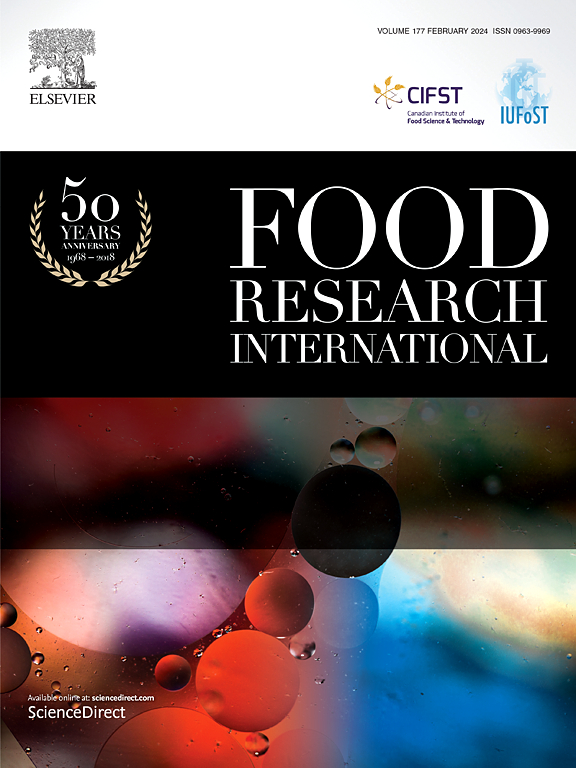Exogenous melatonin enhancing the accumulation of flavonoids and carotenoids in wolfberry fruit at cold storage
IF 7
1区 农林科学
Q1 FOOD SCIENCE & TECHNOLOGY
引用次数: 0
Abstract
The deterioration of fruit quality during refrigeration is a typical symptom of the storage and transportation of Lycium barbarum L. (wolfberry) fruit after harvest. This study aimed to explore the impact of melatonin (MT) treatment on the fruit quality of wolfberry stored at 4°C, using combined transcriptomics and metabolomics analyses. In this study, about 15% of the flavonoid metabolites differed significantly after MT treatment in yellow-fleshed wolfberry, especially for flavanols, flavanones, and flavonols. MT treatment enhanced esterified carotenoid content in red-fleshed wolfberry postharvest. Comparative transcriptomic analysis revealed that MT-induced upregulation of LbaF3’H, LbaHQT and LbaCHS1 might contribute to the increased flavonoids in yellow-flesh wolfberry, and that MT-induced upregulation of LbaPSY, LbaCRTISO and LbaCYCB are responsible for the increased carotenoids in red-flesh wolfberry. Coexpression network analysis showed that several transcription factors such as LbaGATA are involved in MT-mediated regulation of flavonoids and carotenoids. Dual luciferase assay evidenced that LbaGATA and LbaRKD5 depress the expression of LbaPSY. Overall, this study underscores MT's role in maintaining wolfberry postharvest quality during storage, providing a solid foundation of food application.

求助全文
约1分钟内获得全文
求助全文
来源期刊

Food Research International
工程技术-食品科技
CiteScore
12.50
自引率
7.40%
发文量
1183
审稿时长
79 days
期刊介绍:
Food Research International serves as a rapid dissemination platform for significant and impactful research in food science, technology, engineering, and nutrition. The journal focuses on publishing novel, high-quality, and high-impact review papers, original research papers, and letters to the editors across various disciplines in the science and technology of food. Additionally, it follows a policy of publishing special issues on topical and emergent subjects in food research or related areas. Selected, peer-reviewed papers from scientific meetings, workshops, and conferences on the science, technology, and engineering of foods are also featured in special issues.
 求助内容:
求助内容: 应助结果提醒方式:
应助结果提醒方式:


